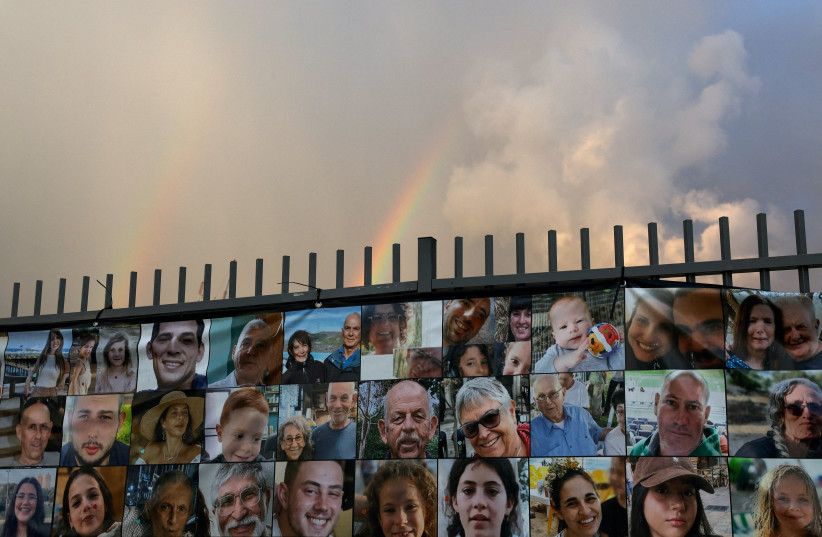‘Israel has the right to defend itself” is a line declared by American presidents and world leaders since Israel’s founding in 1948. The declaration is usually made when Israel finds itself in armed conflict with an enemy and Israel’s allies want to stand alongside Israel in its latest struggle against its foes. The line is meant to be supportive, and Israel is always appreciative of its allies reaffirming its rights, but it also highlights the opinion of many that Israel is an illegitimate country that shouldn’t have the right to defend itself.
For over 2,000 years, even before their exile, the Jewish people felt the persecution of the non-Jewish world. Through crusades, forced exiles, pogroms, and an eventual Holocaust, the Jewish people suffered the inability to defend themselves. Millions of Jews died, and tens of millions experienced indescribable trauma due to the lack of a national defense. Early Zionists started their movement to ensure that a Jew would never face persecution again without a national defense to come to their aid. The State of Israel is the achievement of the Zionist dream of creating a nation where the Jewish people can defend themselves against their enemies.
October 7 and the global response
As Palestinian terrorists crossed over the Israeli-Gaza border on Oct. 7 to brutally murder, rape, and kidnap innocent Jewish people, the world was shocked and responded by coming to Israel’s defense. US President Biden and other world leaders expressed their disgust with the Palestinian attack and the savagery displayed. Support was expressed even in corners not usually friendly to Israel. It seemed that the world finally understood how pervasive Israel’s haters were.
Unfortunately, not every voice was supportive. There were Israel-haters who still couldn’t see the error of their positions even after the massacre. They insisted the world understand the Palestinian attacks “in context.” Dearborn, Michigan Mayor Abdullah Hammoud tweeted, “Israel’s decades of illegal military occupation and imprisonment of Gaza make peace impossible and tragic violence inevitable. Israel has trapped millions of Palestinians in Gaza in what is recognized by the international community as the world’s largest open-air prison. Failure to recognize this context is the inability to comprehend what is unfolding overseas.”
Jews around the world identified with the attack in Israel as if it were an attack on themselves in their own towns. They felt vulnerable, and the safety that the State of Israel provided them seemed to disappear overnight. Many gentiles recognized the extent of just how far-reaching the effects of the October 7 attacks were on the global Jewish community. They stood up in support of local Jews, joined them in their synagogues, prayed for the Israeli hostages, and donated to those who needed help in Israel.
Rising antisemitism

Congresswoman Elise Stefanik asked Harvard President Dr. Claudine Gay, “Dr. Gay, does calling for the genocide of Jews violate Harvard’s rules on bullying and harassment?” While the answer was an obvious yes, Gay replied that the context was important: “The rules around bullying and harassment are quite specific. And if the context in which that language is used amounts to bullying and harassment, then we take – we take action against it.”
Later in the hearing, Stefanik asked University of Pennsylvania President Liz Magill if calling for the genocide of Jews constitutes bullying or harassment, and President Magill answered using context as well. “It is a context-dependent decision, Congresswoman,” she said.
As Stefanik’s time came to a close, she stated that calling for the genocide of Jews should violate any university code of conduct and that it does not depend on the context. As leaders, politicians, and commentators analyzed the Congressional testimony, a few themes were shared by people of all backgrounds. They were shocked that calling for the genocide of any other race, nation, or people would be acceptable or not even considered a violation of a code of conduct and would require context to define it as bullying or harassment. It seemed that Jewish people were being held to a different standard than everyone else. Congress then passed a resolution that “strongly condemns the testimony of University of Pennsylvania President Elizabeth Magill, Harvard University President Claudine Gay, and Massachusetts Institute of Technology President Sally Kornbluth and their failure to clearly state that calls for the genocide of Jews constitute harassment and violate their institutions’ codes of conduct.”
Many people argue that context shouldn’t play a role in understanding attacks on Israel or antisemitism. They understand that Hammoud’s tweet that the Oct. attack must be “recognized in context” and the university presidents’ explanation that characterizing antisemitic calls for Jewish genocide as harassment is a “context-dependent decision” are wrong. They argue that hate is hate, rape is rape, and harassment is harassment, and they’re correct.
There is context that matters when it comes to understanding the attacks against Israel, the subsequent war that Israel is waging in Gaza, and the antisemitic calls being voiced around the world. The context is the history of persecution that Jews have faced for over 2,000 years and the need for a Jewish state to protect the Jewish people from further persecution and attacks. Oct. 7 was hardly the first time that the Jewish people and the State of Israel were attacked. Like any nation, the Jewish people have the right to defend themselves and their country. These are the tenets of Zionism and the only context that matters when understanding the war in Gaza.
The writer is a Zionist educator at institutions around the world and recently published a new book, Zionism Today.
